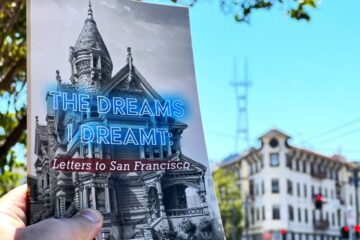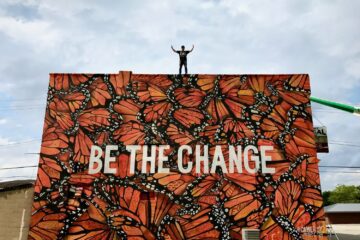Know Your Rights as a Protester
If you are going to attend a protest, organize a protest or photograph a protest, you should definitely know your rights as a protester, AND the rights of the police officers, to police you. For more in depth advice on ‘HOW to protest safely’, check this article out.
The ACLU of Southern California is serious about protecting protesters’ First Amendment rights. You can download and printout a copy of the ACLU ‘Know Your First Amendment Rights to Demonstrate and Protest and have it on you in paper form.
Bellow are guidelines directly from the American Civil Liberties Union, on your rights as a protester:
Protester BASICS: What you can & cannot do:
- You CAN: distribute leaflets, flyers, and literature
- You CAN: picket and protest on public sidewalks, parks and plazas
- You CAN: chant and sing protest songs on public sidewalks, parks and plazas
- You CAN’T: block access to sidewalks or buildings
- You CAN’T: physically disrupt counter-protests
- You CAN’T: distribute anything that is obscene, defamatory or likely to incite an immediate disruptive or dangerous disturbance
ACLU tips on how to interact with the police, including:
- Think carefully about your words, movement, body language, and emotions.
- Don’t get into an argument with the police.
- Remember, anything you say or do can be used against you.
- Keep your hands where the police can see them.
- Don’t run.
- Don’t touch any police officer.
- Don’t resist even if you believe you are innocent.
- Don’t complain on the scene or tell the police they’re wrong or that you’re going to file a complaint.
- Do not make any statements regarding the incident.
- Ask for a lawyer immediately upon your arrest.
- Remember officers’ badge and patrol car numbers.
- Write down everything you remember ASAP.
- Try to find witnesses and their names and phone numbers.
- If you are injured, take photographs of the injuries as soon as possible, but make sure you seek medical attention first.
- If you feel your rights have been violated, file a written complaint with the police department’s internal affairs division or civilian complaints board, call the ACLU at (213)977- 5253 or go through our legal intake system here.
Photographers
View our Know Your Rights Guide for Photographers for more information on your right to take photographs and to videotape, including:
- When in public spaces where you are lawfully present you have the right to photograph anything that is in plain view. That includes pictures of federal buildings, transportation facilities, and police. Such photography is a form of public oversight over the government and is important in a free society.
- Police officers may not generally confiscate or demand to view your photographs or video without a warrant. If you are arrested, the contents of your phone may be scrutinized by the police, although their constitutional power to do so remains unsettled. In addition, it is possible that courts may approve the seizure of a camera in some circumstances if police have a reasonable, good-faith belief that it contains evidence of a crime by someone other than the police themselves (it is unsettled whether they still need a warrant to view them).
- Police may not delete your photographs or video under any circumstances.
- Police officers may legitimately order citizens to cease activities that are truly interfering with legitimate law enforcement operations. Professional officers, however, realize that such operations are subject to public scrutiny, including by citizens photographing them.
- The right to photograph does not give you a right to break any other laws. For example, if you are trespassing to take photographs, you may still be charged with trespass.
- View the rest of the guide here.
View the National Lawyers Guild’s Legal Observer Training Manual for more information on assisting with training legal observers.
I’m organizing a protest
Your rights
- Your rights are strongest in what are known as “traditional public forums,” such as streets, sidewalks, and parks. You also likely have the right to speak out on other public property, like plazas in front of government buildings, as long as you are not blocking access to the government building or interfering with other purposes the property was designed for.
- Private property owners can set rules for speech on their property. The government may not restrict your speech if it is taking place on your own property or with the consent of the property owner.
- Counterprotesters also have free speech rights. Police must treat protesters and counterprotesters equally. Police are permitted to keep antagonistic groups separated but should allow them to be within sight and sound of one another.
- When you are lawfully present in any public space, you have the right to photograph anything in plain view, including federal buildings and the police. On private property, the owner may set rules related to photography or video.
Do I need a permit?
- You don’t need a permit to march in the streets or on sidewalks, as long as marchers don’t obstruct car or pedestrian traffic. If you don’t have a permit, police officers can ask you to move to the side of a street or sidewalk to let others pass or for safety reasons.
- Certain types of events may require permits. These include a march or parade that requires blocking traffic or street closure; a large rally requiring the use of sound amplifying devices; or a rally over a certain size at most parks or plazas.
- While certain permit procedures require submitting an application well in advance of the planned event, police can’t use those procedures to prevent a protest in response to breaking news events.
- Restrictions on the route of a march or sound equipment might violate the First Amendment if they are unnecessary for traffic control or public safety, or if they interfere significantly with effective communication to the intended audience.
- A permit cannot be denied because the event is controversial or will express unpopular views.
- If the permit regulations that apply to your protest require a fee for a permit, they should allow a waiver for those who cannot afford the charge.
What to do if you believe your rights have been violated
- When you can, write down everything you remember, including the officers’ badge and patrol car numbers and the agency they work for.
- Get contact information for witnesses.
- Take photographs of any injuries.
- Once you have all of this information, you can file a written complaint with the agency’s internal affairs division or civilian complaint board.
I’m attending a protest
Your rights
- Your rights are strongest in what are known as “traditional public forums,” such as streets, sidewalks, and parks. You also likely have the right to speak out on other public property, like plazas in front of government buildings, as long as you are not blocking access to the government building or interfering with other purposes the property was designed for.
- Private property owners can set rules for speech on their property. The government may not restrict your speech if it is taking place on your own property or with the consent of the property owner.
- Counterprotesters also have free speech rights. Police must treat protesters and counterprotesters equally. Police are permitted to keep antagonistic groups separated but should allow them to be within sight and sound of one another.
- When you are lawfully present in any public space, you have the right to photograph anything in plain view, including federal buildings and the police. On private property, the owner may set rules related to photography or video.
- You don’t need a permit to march in the streets or on sidewalks, as long as marchers don’t obstruct car or pedestrian traffic. If you don’t have a permit, police officers can ask you to move to the side of a street or sidewalk to let others pass or for safety reasons.
What to do if you believe your rights have been violated
- When you can, write down everything you remember, including the officers’ badge and patrol car numbers and the agency they work for.
- Get contact information for witnesses.
- Take photographs of any injuries.
- Once you have all of this information, you can file a written complaint with the agency’s internal affairs division or civilian complaint board.
What happens if the police issues an order to disperse the protest?
- Shutting down a protest through a dispersal order must be law enforcement’s last resort. Police may not break up a gathering unless there is a clear and present danger of riot, disorder, interference with traffic, or other immediate threat to public safety.
- If officers issue a dispersal order, they must provide a reasonable opportunity to comply, including sufficient time and a clear, unobstructed exit path.
- Individuals must receive clear and detailed notice of a dispersal order, including how much time they have to disperse, the consequences of failing to disperse, and what clear exit route they can follow, before they may be arrested or charged with any crime.
I want to take pictures or shoot video at a protest
Your rights
- When you are lawfully present in any public space, you have the right to photograph anything in plain view, including federal buildings and the police. (On private property, the owner may set rules about photography or video.)
- Police officers may not confiscate or demand to view your photographs or video without a warrant, nor may they delete data under any circumstances. However, they may order citizens to cease activities that are truly interfering with legitimate law enforcement operations.
- If you are videotaping, be aware that there is an important legal distinction between a visual photographic record (fully protected) and the audio portion of a videotape, which some states have tried to regulate under state wiretapping laws.
What to do if you are stopped or detained for taking photographs
- Always remain calm and never physically resist a police officer.
- Police cannot detain you without reasonable suspicion that you have or are about to commit a crime or are in the process of doing so.
- If you are stopped, ask the officer if you are free to leave. If the answer is yes, calmly walk away.
- If you are detained, ask the officer what crime you are suspected of committing, and remind the officer that taking photographs is your right under the First Amendment and does not constitute reasonable suspicion of criminal activity.
What to do if you believe your rights have been violated
- When you can, write down everything you remember, including the officers’ badge and patrol car numbers and the agency they work for.
- Get contact information for witnesses.
- Take photographs of any injuries.
- Once you have all of this information, you can file a written complaint with the agency’s internal affairs division or civilian complaint board.
I was stopped by the police while protesting
Your rights
- Stay calm. Make sure to keep your hands visible. Don’t argue, resist, or obstruct the police, even if you believe they are violating your rights. Point out that you are not disrupting anyone else’s activity and that the First Amendment protects your actions.
- Ask if you are free to leave. If the officer says yes, calmly walk away.
- If you are under arrest, you have a right to ask why. Otherwise, say you wish to remain silent and ask for a lawyer immediately. Don’t say anything or sign anything without a lawyer.
- You have the right to make a local phone call, and if you’re calling your lawyer, police are not allowed to listen.
- You never have to consent to a search of yourself or your belongings. If you do explicitly consent, it can affect you later in court.
- Police may “pat down” your clothing if they suspect you have a weapon and may search you after an arrest.
- Police officers may not confiscate or demand to view your photographs or video without a warrant, nor may they delete data under any circumstances. However, they may order citizens to cease activities that are truly interfering with legitimate law enforcement operations.
What to do if you believe your rights have been violated
- When you can, write down everything you remember, including the officers’ badge and patrol car numbers and the agency they work for.
- Get contact information for witnesses.
- Take photographs of any injuries.
- Once you have all of this information, you can file a written complaint with the agency’s internal affairs division or civilian complaint board.








